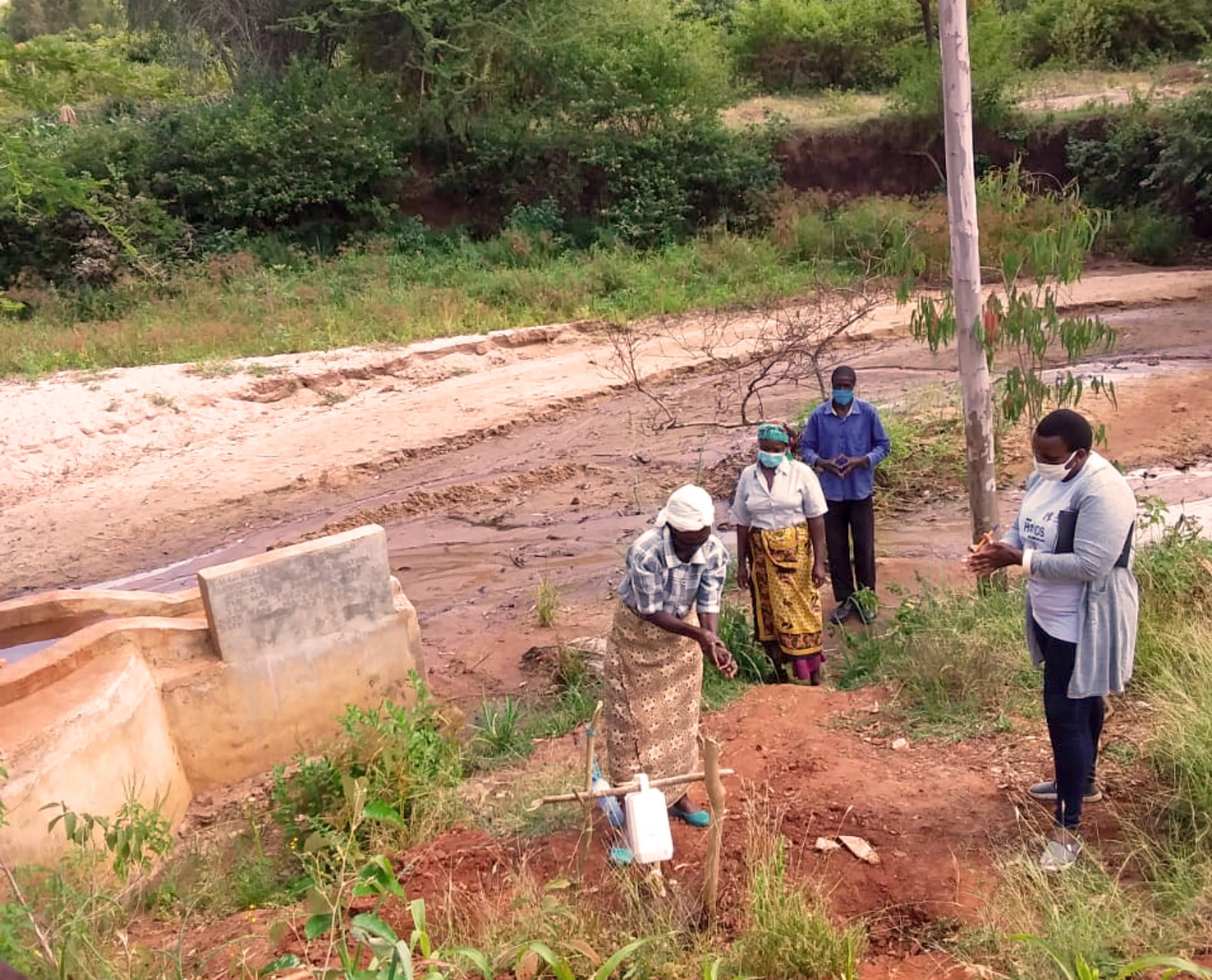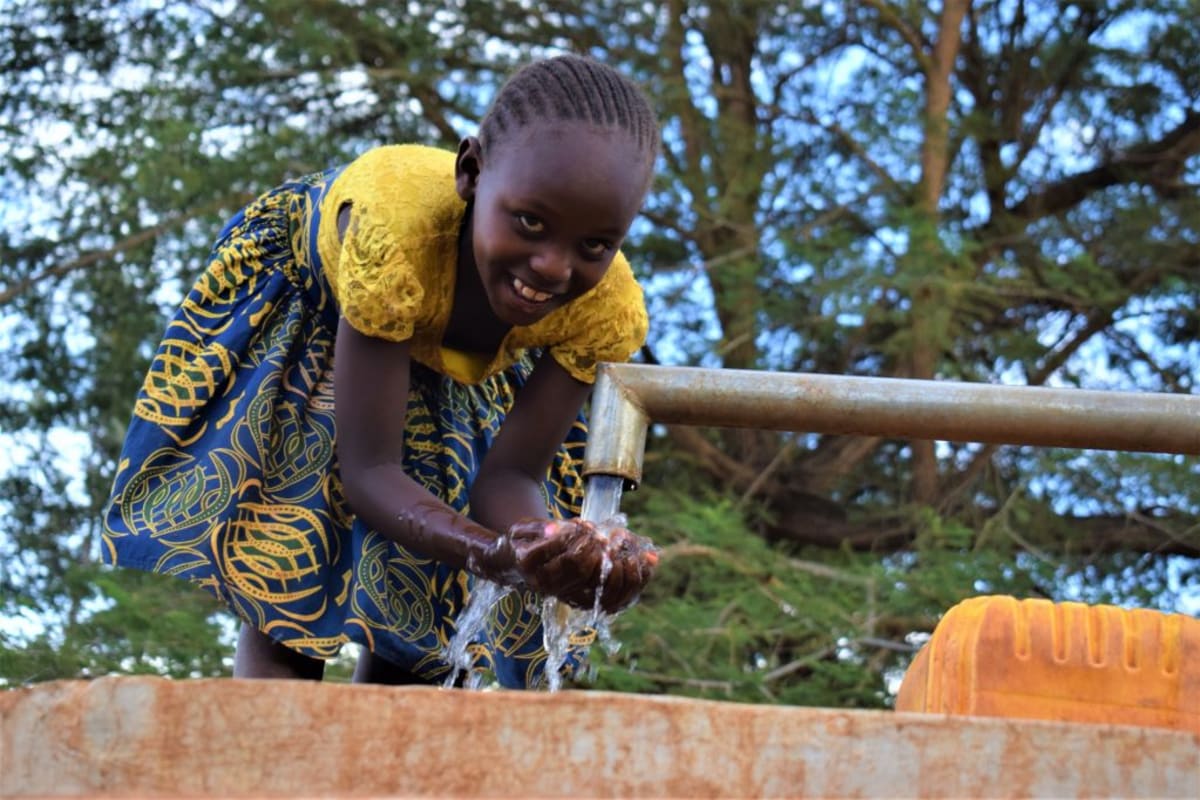Utuneni Village is a calm and fairly vegetated rural area whose terrain is graded with red fertile soil. The houses are made of red bricks and are somewhat modern. However, among the homesteads we visited, not all the floors were cemented.
There are many occupations in the area but the most common are farming and casual labor. The young men mostly resort to casual labor where they work on other people's farms or they work as constructors and are paid on a daily basis.
On an average day, the women wake up at 6am, go to fetch water, and then prepare breakfast for the family as the children prepare for school. The men go to the farm to get grass for the livestock and prepare to run errands.
Errands that are most common are farming, taking farm products to the market, and feeding the livestock. During the day, the women wash the family’s clothes, tidy up the house, washes utensils and prepare lunch as well as supper for the family. They also have the community meetings such as fellowship and self-help group meetings during the day.
Water
Community members walk up to an hour to reach the spring near the Kinyongo River. Long lines at the water source mean people sometimes wait up to an hour to fetch the water once they have arrived.
The spring water is always crowded since its the sole water point in the community during the dry season. Some families enlist donkeys to help carry the water. Those who cannot afford the assistance usually can only carry one jerrycan of water at a time.
"We struggle a lot to fetch water from this spring but we have no option. It is very far," said Mrs. Esther Mutheu said.
"The problem is that it is usually overcrowded and since it's the only source of water we have we have to be patient."
The water is not safe for drinking since the source is not protected, thus posing a high risk of contracting typhoid, amoeba and other water-borne diseases. The water is especially prone to harbor all kinds of pollutants during the rainy season.
"Typhoid is the most common because people rarely treat their water here, only a few people have that knowledge and patience," Mrs. Mutheu said.
Sanitation
The members of these homesteads posses some of the structures needed for good hygiene such as latrines and bathing stations. Fewer than half of homes in the community have latrines, but many will share with their neighbors.
In one of the homesteads observed, the bathroom did not have a door instead they put sacks on the door area. The latrines are rarely cleaned since there is no nearby water source - hence emitting foul smells. And there are no handwashing stations near the latrines. People opt to use ash as a cleaning technique because water is a scarce commodity.
What we plan to do about it:
Our main entry point into Utuneni Community has been the Ngwatanio Ya Kinyongo Self-Help Group, which is comprised of 44 farming households that are working together to address water and food scarcity in their region. These members will be our hands and feet in both constructing water projects and spreading the message of good hygiene and sanitation to everyone.
Training
We’re going to train Utuneni Community on hygiene and sanitation practices. We want to ensure that community members are practicing the day to day habits we’re not able to observe. Food hygiene, water hygiene and treatment, personal hygiene and handwashing will all be a focus during our sessions together.
Hand-Dug Well
This particular hand-dug well is being built adjacent to this group’s ongoing sand dam project (click here to see), which will supply clean drinking water once it rains. We have supplied the group with the tools needed for excavation. With the guidance of our artisans and mechanics, the excavated well will be cased, sealed with a well pad, and then finished with a new AfriDev pump.
Excavation takes a month or more on average, depending on the nature of the rock beneath. Construction of the well lining and installation of the pump takes 12 days maximum. The well will be lined with a concrete wall including perforations so that once it rains, water will filter in from the sand dam.
This well will be located in Utuneni Village and will bring clean water closer to families having to walk long distances for their water.
This project is a part of our shared program with Africa Sand Dam Foundation. Our team is pleased to provide the reports for this project (edited for readability) thanks to the hard work of our friends in Kenya.

 Protected Dug Well
Protected Dug Well
 Rehabilitation Project
Rehabilitation Project

































